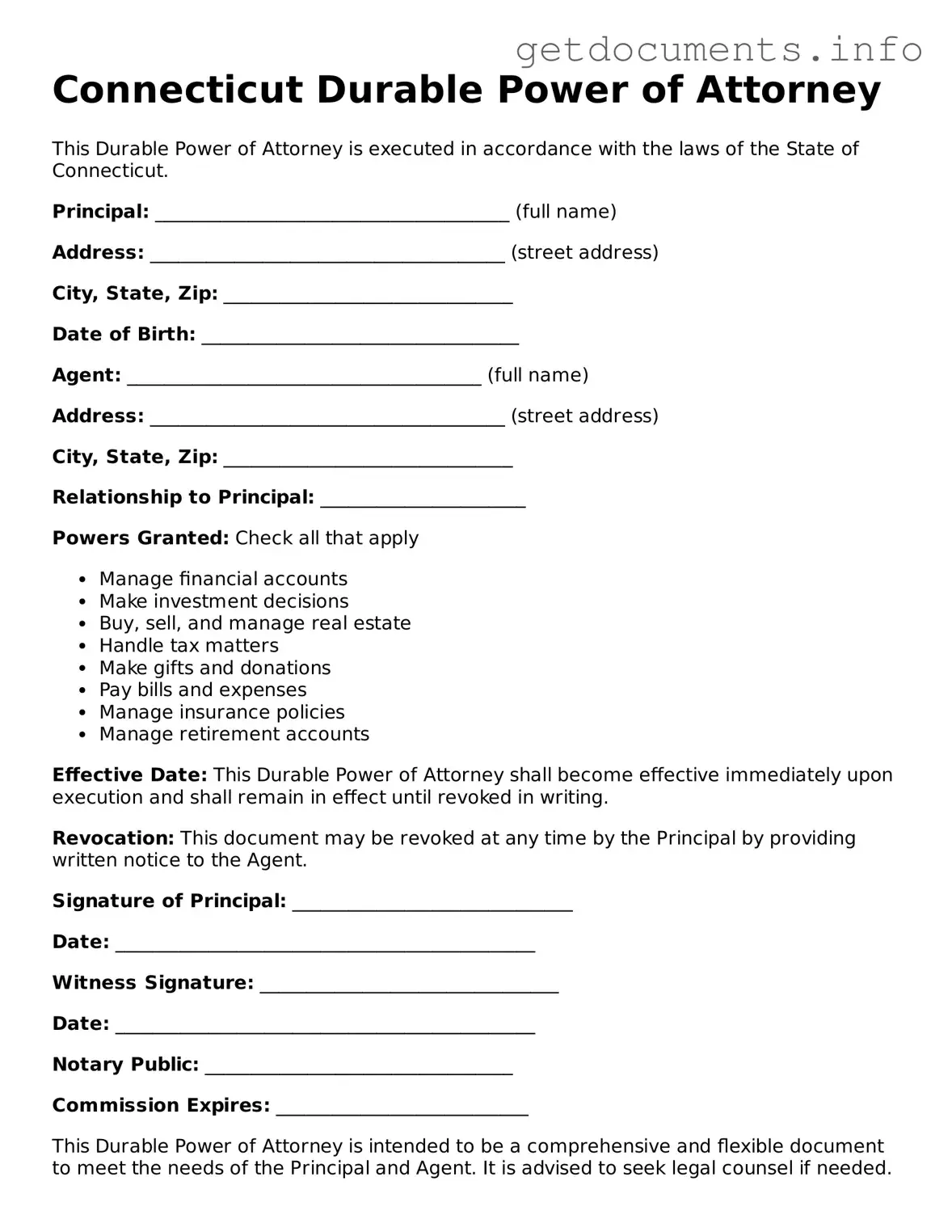Free Durable Power of Attorney Template for Connecticut
A Connecticut Durable Power of Attorney form allows an individual to designate another person to make financial and legal decisions on their behalf, even if they become incapacitated. This important document ensures that your wishes are respected and that your affairs are managed according to your preferences. To take the next step in securing your future, consider filling out the form by clicking the button below.
Access Durable Power of Attorney Editor

Free Durable Power of Attorney Template for Connecticut
Access Durable Power of Attorney Editor
Got places to be? Complete the form fast
Fill out Durable Power of Attorney online and avoid printing or scanning.
Access Durable Power of Attorney Editor
or
⇩ PDF File
